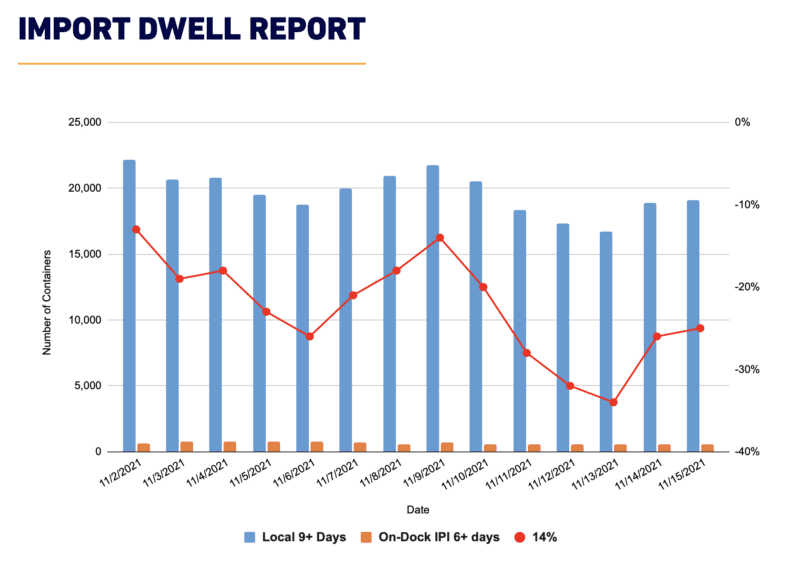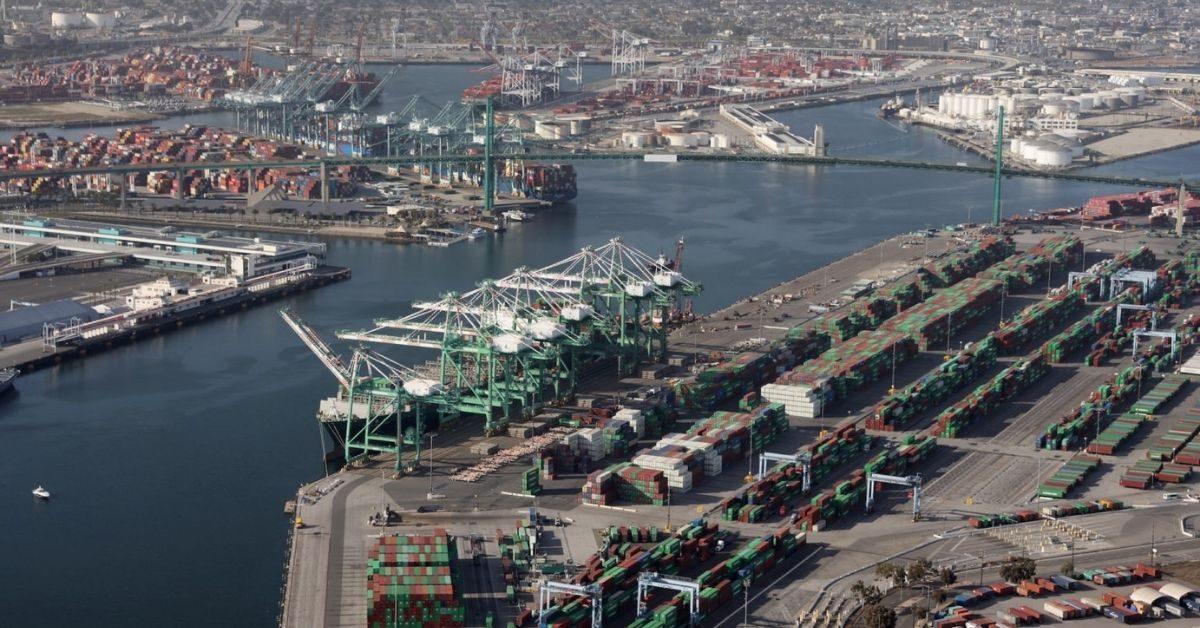San Pedro Bay Ports postpone dwell time fees set to start Monday as port authorities report progress despite an increasing number of containers over the weekend.
The ports of Los Angeles and Long Beach announced Monday that they will delay their controversial container dwell fee directed at ocean carriers until November 22, bringing a sigh of relief for helpless cargo owners who faced steep penalties for containers stuck in marine terminals.
In making their announcement, the ports cited a 26% reduction in the number of containers dwelling past the limit, at least compared to October 25 when they first announced the penalties. But looking at charts, you can see the number of containers in port increased over the weekend, including in the critical 9+ day range that the fees would target.
As we have reported, under the temporary policy approved by the Harbor Commissions of both ports, the container dwell fee would be charged to ocean carriers for all import containers dwelling at marine terminals for 9 or more days for containers scheduled to move by truck, and 6 or more days for those scheduled to move rail. Containers falling in these categories would be charged $100 per container, increasing in $100 increments per container per day until leaving the terminal.
Although it does seem like some progress has been made in removing lingering containers in the weeks since the new policy announcement, figures updated Monday still showed over 29,000 containers staying past the limit at the Port of Los Angeles, including 20,800 dwelling for 13 days or more. At the Port of Long Beach, the number stands at 19,600 lingering past the allowable dwell times.
Port of Los Angeles Dwell Times – Updated 11/15

Port of Long Beach Dwell Times – Updated 11/15

Combined, that’s more than 48,000 containers that would have been subjected to the penalty if the new policy went into effect as planned today, as well as an uptick from the previous released numbers from Friday, which showed about 43,000 containers dwelling past the allowable limit.
At $100 a pop, the ports would have been set to dish out fines totaling $4.8 million today alone, adding to shipping costs that would ultimately get passed directly by ocean carriers to shippers and consumers. And each day those containers aren’t moved from terminals, the daily fine increases by $100 increments without limit.
“We’re encouraged by the progress our supply chain partners have made in helping our terminals shed long-dwelling import containers. Clearly, everyone is working together to speed the movement of cargo and reduce the backlog of ships off the coast as quickly as possible,” said Port of Long Beach Executive Director Mario Cordero. “Postponing consideration of the fee provides more time, while keeping the focus on the results we need.”
Fees collected from dwelling cargo are expected to be reinvested for programs designed to enhance efficiency, accelerate cargo velocity and address congestion impacts. But as it stands now, the ports will delay consideration of the fee until November 22, 2021.
“There’s been significant improvement in clearing import containers from our docks in recent weeks,” said Port of Los Angeles Executive Director Gene Seroka, who also alluded to the fees in a CBS 60 Minutes segment that aired Sunday. “I’m grateful to the many nodes of the supply chain, from shipping lines, marine terminals, trucks and cargo owners, for their increased collaborative efforts. We will continue to closely monitor the data as we approach November 22.”
Before the pandemic-induced import surge began in mid-2020, on average, containers for local delivery remained on container terminals under four days, while containers destined for trains dwelled less than two days.
Source : G Captain







